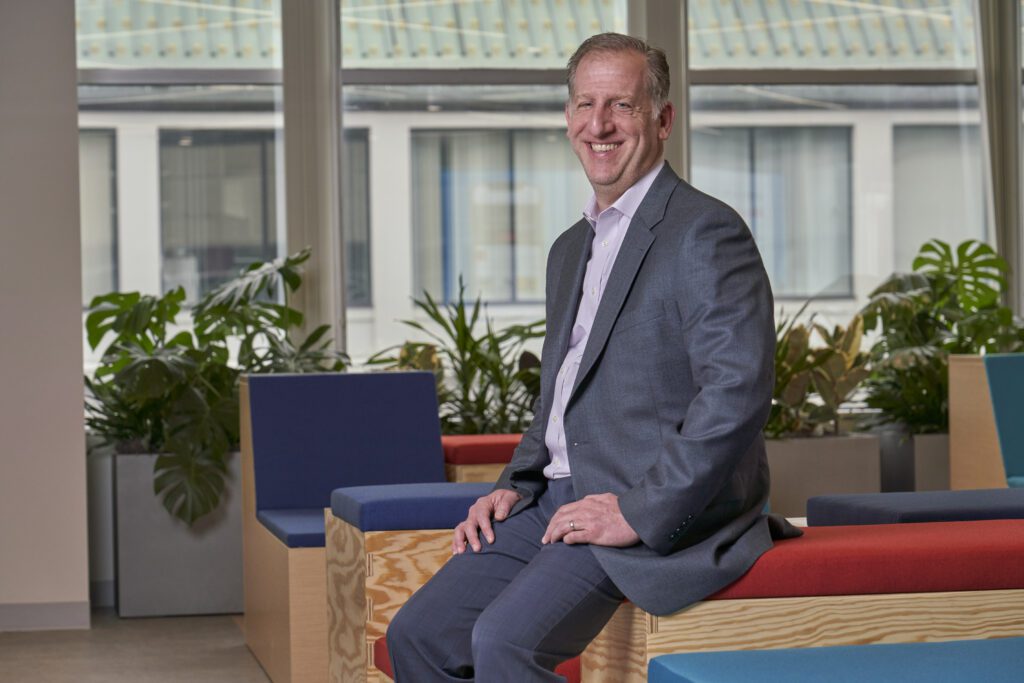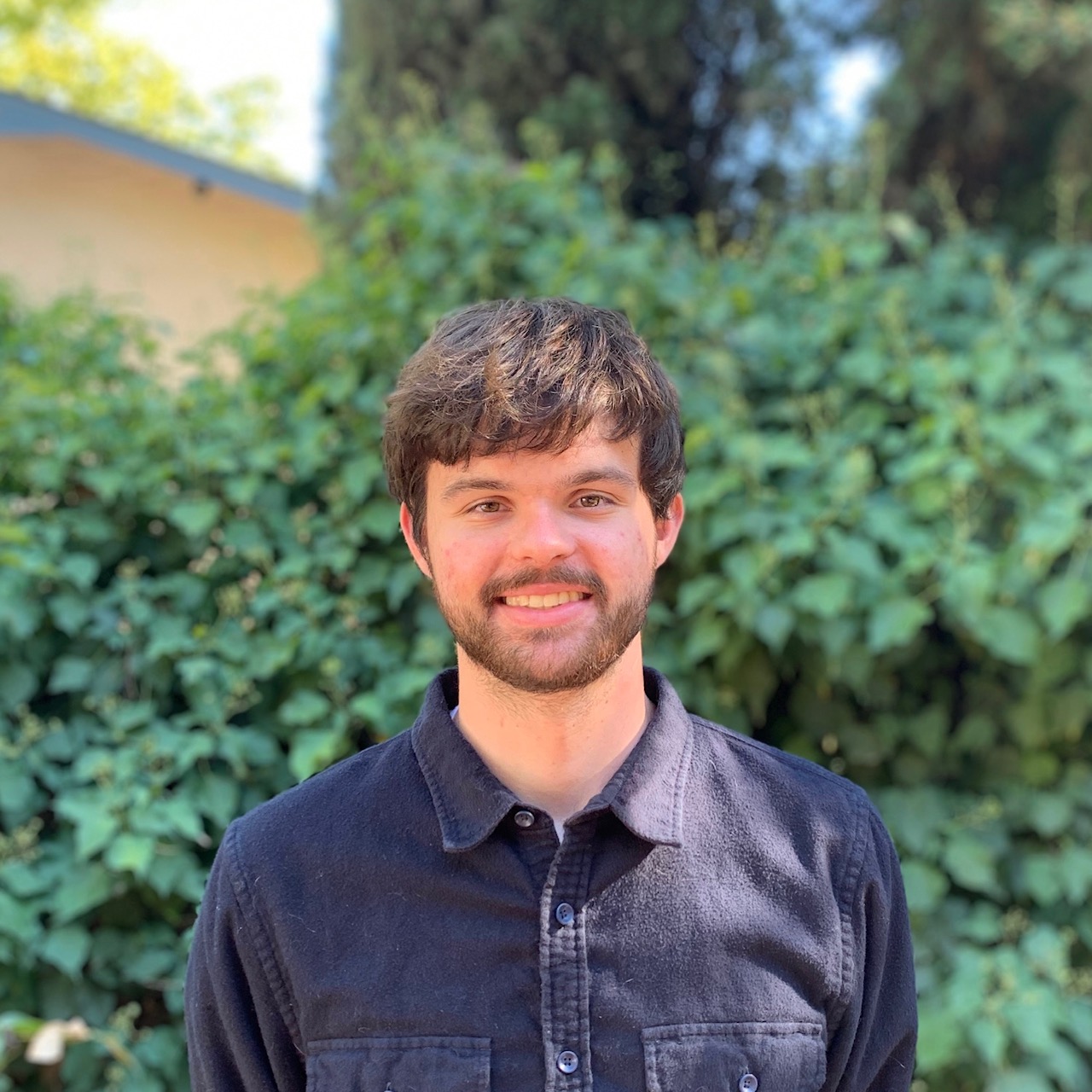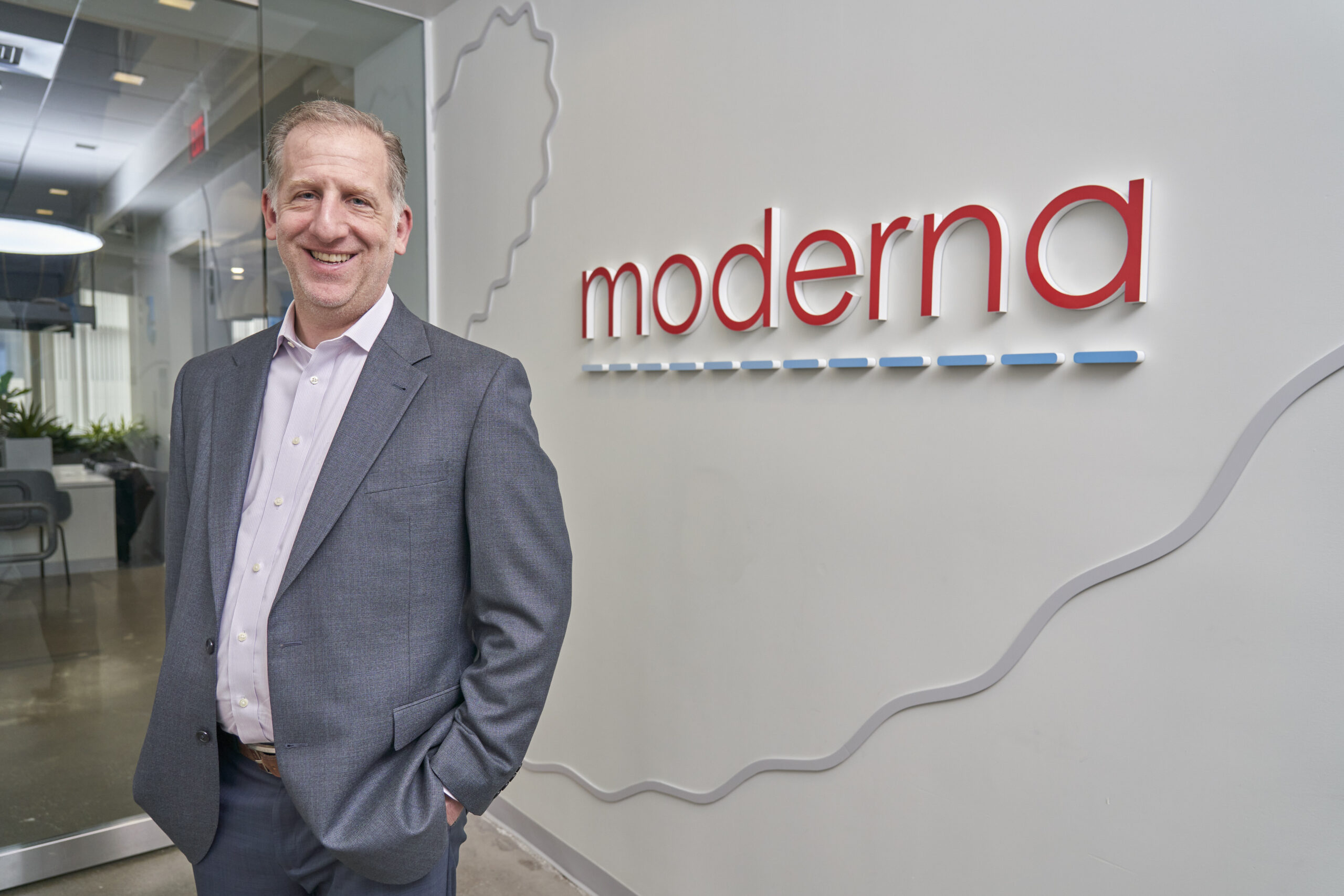As vice president and global head of learning at Moderna, Noah Rabinowitz leads an internal team of 10 talent and learning professionals using an untraditional approach to development. Despite only being a part of the Moderna team since March, Rabinowitz can tap into his extensive knowledge and perspective of the learning and development industry to build a world-leading learning university at Moderna.
Before joining Moderna, Rabinowitz led and worked on many teams at organizations such as Intel, Deloitte, Korn Ferry and Lucent, where, in the U.S. and overseas, he helped design and develop L&D opportunities in varying environments from shop floors to university campuses. Rabinowitz has built extensive expertise in the L&D space by rethinking how his teams can learn, and collaborating with the highly skilled teams he’s worked on, from programs that help veterans tell their story to programs with the intentionality to last.
The path
Rabinowitz started in education long before his first experiences on professional L&D teams, while working at a wilderness summer camp. There, he found his passion for teaching and working with young people prior to working overseas as a teacher and going back to learn more himself.
While at the University of Michigan pursuing his master’s in education, Rabinowitz honed his talents at an internship focused on skills-based L&D for university employees, until he eventually got a call to do consulting work at Anderson Consulting (now Accenture) before traveling the world and landing at Alcatel Lucent and eventually Lore.
In his work in Mexico, Brazil, Chile, Argentina, Germany, China to name a few, he gained experience working with clients across industries from commercial and consumer goods to aerospace defense and energy sectors while rethinking the role of leadership development, succession planning and more. “I’m just getting this incredible set of experiences,” Rabinowitz says.
At Korn Ferry, he moved up to become the global practice lead of leadership development in charge of several hundred practitioners. Over more than a decade there, Rabinowitz’s perspective on L&D evolved. “The diversity of experiences, traveling the world, meeting incredible people, working with other people that were doing human capital work in the executive space, in the recruitment process, automation and outsourcing space,” Rabinowitz says. “It broadened even more.”
“I’m just getting this incredible set of experiences.
”
Eventually, Rabinowitz got a call from Deloitte to work at their new startup learning practice where he worked closer to learning practice, gained exposure to learning management systems and aimed to disrupt the broader leadership development industry. His time there also helped him answer essential business questions about L&D functions, such as how to fund and budget a learning organization, create supporting governance and implement instructional design at a place where people come from all over the world to learn. “I got to be there, work there, take clients there and be a student myself there,” he says. Until on another “out-of-the-blue day,” he got a call from Intel to be their chief learning officer.
At Intel, serving a 120,000-person organization and one of the leading technology companies in the world, Rabinowitz thought he would be there for the rest of his career. But his ambitions didn’t end there. “In my space, [Intel is] kind of like the ultimate,” Rabinowitz says. “I went there thinking I would stay there probably for the rest of my career. There’s plenty of work to do.”
Three years later, he got the call to join Moderna and help them become “the beacon of education for not just biopharma, but really for the health care industry in general,” Rabinowitz says. “It was just too good of an opportunity to say no to. It’s at a totally different stage of its evolution in terms of its maturity and everything, but that was actually what attracted me here. It’s the ultimate kind of startup” Rabinowitz joined Moderna for a chance to tap into his deep history of experience and expertise to build a world-leading learning ecosystem from the ground up.
Breaking tradition
For Robinowitz, there’s no single success factor above the rest, but two of the biggest success indicators for Rabinowitz can be answered by simple questions: Are you creating well-being for your people? And, are you helping them develop skills to reach their full potential? Building a healthy brand for that success also serves to attract talent.
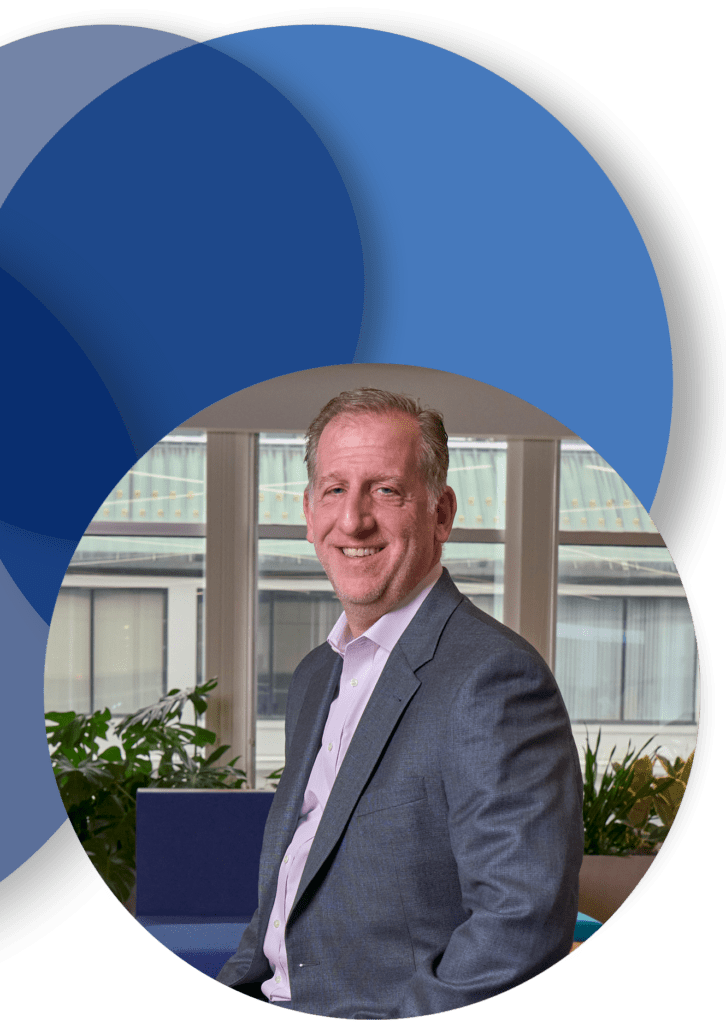
“Noah is a big-picture thinker, he certainly thinks at the 30,000-foot level,” says Wayne Robinson, executive leadership development lead at Google. “But he is also very innovative. He has a knack for taking learning principles and turning them into journeys that feel nice, easy, light, fun.”
Another factor for his success is reducing development and rethinking strategies to their core. He’s all about asking questions and digging deeper, “like a traditional case of this skeptic, really challenging the underlying orthodoxies that form our assumptions, but also really thinking about what is the better way,” says Neil Alger, head of talent development at Google. “And I think that that’s in many ways probably a superpower.” A power that comes from intentional commitment to improvement.
Rabinowitz’s approach to programs includes problem-solving that requires collaboration and moves away from how we traditionally think about L&D programs and strategies. Instead, he sees it as necessary to develop programs that address specific problems and rethink what’s taken for granted. “Something I’ve absolutely taken from Noah is this idea that no matter what it is, you can ask good questions about it that challenge the fundamental assumptions of what it has historically looked like,” says Alger. “In that process, you will find your way to new and novel ideas. If you don’t do that, you will find yourself stuck within a set of boundaries that are yours that you yourself have created.”
Above all, Rabinowitz’s ultimate goal and vision at Moderna is to cultivate a path toward exponential learning and that “beacon of education.” On that path is fulfillment and engagement that leads to more rewarding experiences for employees on their career journey and the organizational culture.
“Noah is a big-picture thinker, he certainly thinks at the 30,000-foot level.
”
The question for Rabinowitz becomes: How do we tap into human potential and help people achieve in their careers? “Because a career sometimes is a place to die,” he says. “Why is work something that you want to minimize in your life? I feel it’s because people aren’t achieving their fullest potential at work, and the way you do that is through learning and development. It’s like fuel for the human soul. And it takes your job, no matter what your job is, and turns it into something that you can love.”
Rabinowitz sees work — and by extension, Moderna — as the place where you’re intended to produce the impact you will leave. “Your employer has a duty and a responsibility to help you live up to your fullest potential of what that impact can be,” Rabinowitz says. “That’s a belief system that exists here that doesn’t exist in many companies.” Instead, many solely focus on ROI when not everything is or should be calculable.
“The obsessive quest for ROI is not a healthy thing to create a learning and leadership development culture,” Rabinowitz says. “You can’t just be inefficient with money, but if that’s the guiding principle, you’ve already lost the battle.”
Instead, the battle should be focused on paving the way for exponential learning and “blurring the lines between working and learning,” Rabinowitz says. To “seamlessly integrate those two things.” As he envisions it, the flow of work approach would involve intentional reflection and exploration as employees and learners move through the day. Traditional corporate learning in publicly traded companies often lacks the “time and space, even if it’s just five minutes, to turn that experience into learning that can be applied to the next thing,” Rabinowitz says. “That is the path to exponential.”
For any organization, people are gaining knowledge and having interactions all day, but the intentionality to analyze and digest what you just learned is something Rabinowitz has been working on since his time at Deloitte — and something he wants to fully realize at Moderna. Because beyond just making powerpoints and forgetting about them the next day, being intentional about learning and being committed to getting better and verifying the intended message from feedback is crucial to building the best programs.
“Yes, you can learn by doing. But to go exponential with learning, you have to take that small timeout — or medium or big — to turn the experience you’ve had into something that might actually change the wiring of your brain.
”
“Yes, you can learn by doing,” Rabinowitz says. “But to go exponential with learning, you have to take that small timeout — or medium or big — to turn the experience you’ve had into something that might actually change the wiring of your brain.”
Conditions for reinvention
Throughout his career with focuses on consulting, corporate universities, in-house sales transformations and learning organizations serving 120,000 people; the only thing left to do for Rabinowitz was to try to build something entirely new from the ground up. Moderna offers the opportunity to build a world-class example of the best that learning can be. “There’s no better place to do that than Moderna because Moderna’s role in the world is unique. People listen to what we do, and they respect us, we’re an innovative company that is changing human health care,” Rabinowitz says. “It’s a place where we have a CEO who cares and is passionate about learning and development. It’s got all the right conditions to reinvent the way we do learning completely.”
Moderna is “small but mighty,” says Tracey Franklin, chief human resources officer at Moderna. “What we’ve been able to accomplish is heroic.” Growing from 700 people to just under 2,000 employees and delivering hundreds of millions of vaccine doses while building out a company overnight is a unique position at our moment in time. “It looks and feels like it’s all built, but in reality it is very much still a startup,” Franklin says. And with recent expansion into 11 different countries where LMS needs to be installed, “that’s where he just has the experience,” Franklin says. “We will lay that piping at a faster pace than others will be able to.”
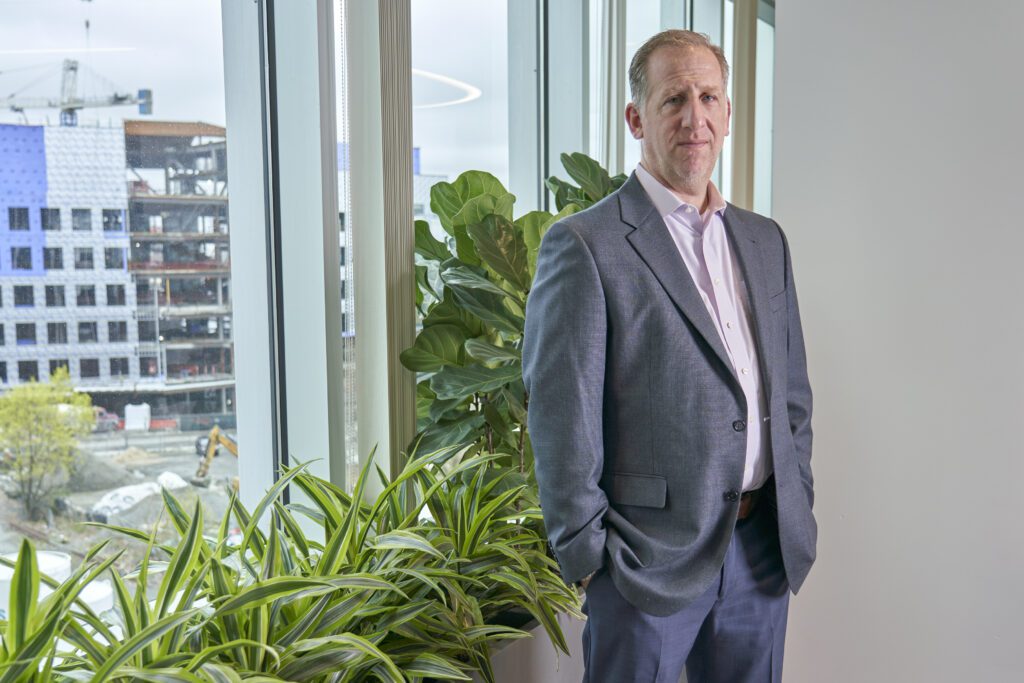
In a short amount of time, Rabinowitz has been a calm presence for a team that has been quite “hair on fire,” Franklin says. “He’s very in touch with what makes an organization breathe and what employees want. In addition to being business savvy, he’s really going to be able to make sure it’s a differentiated employee experience.”
Right in line with his philosophies of constant progress and rethinking, Rabinowitz’s L&D department at Moderna operates differently than most. With an internal L&D team of 10, they take an untraditional approach to be responsive enough to take on the problems of a growing company. By partnering and collaborating with outside organizations, it provides flexibility for L&D and growth that few organizations fully consider when simply growing internally. “We’re building an ecosystem that’s based on the idea of building the best learning and development experiences on the planet and using resources flexibly to achieve that goal,” Rabinowitz says. “The goal is to be the best at everything,” from manager development to artificial intelligence academies and cyberlearning.
“I’m so excited to see what happens when there’s that much white space, frankly,” Alger says. “The conditions exist for something radical in there, and he’s the catalyst of it. There’s something about this moment that’s very unique.”
Back to basics
“Wherever Noah goes, he’s going to push down so it’s not going to be learning and development as it was yesterday,” Robinson says. “He’s great at bringing in all aspects of learning, from micro-learning to learning on demand to leveraging technology to whatever he can leverage to take leaders or executives to the next level.”
With an extensive toolkit of L&D knowledge and experience, Rabinowitz knows what works and what doesn’t. “He understands the business aspects and he’s able to pull the levers of learning to provide the most impact,” Franklin says.
He also knows that as an industry, the L&D world gets “caught up in the shiny object syndrome to the expense of the growth mindset, which has to be really intentionally developed,” Rabinowitz says. “If you’re not developing it, what you’re doing is you’re building a house with no foundation. The path to an exponential building culture begins with developing the ability to learn.”
